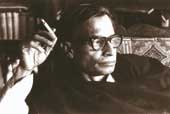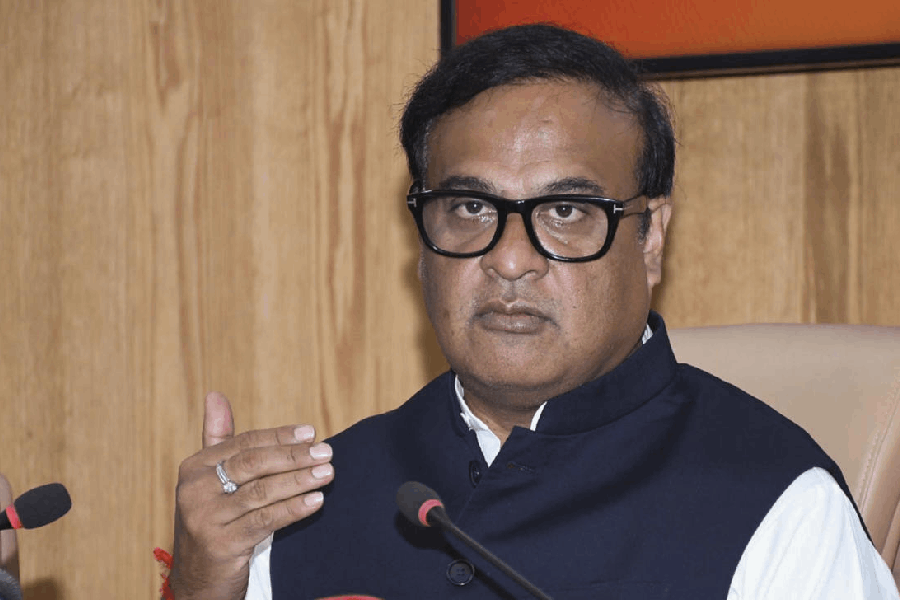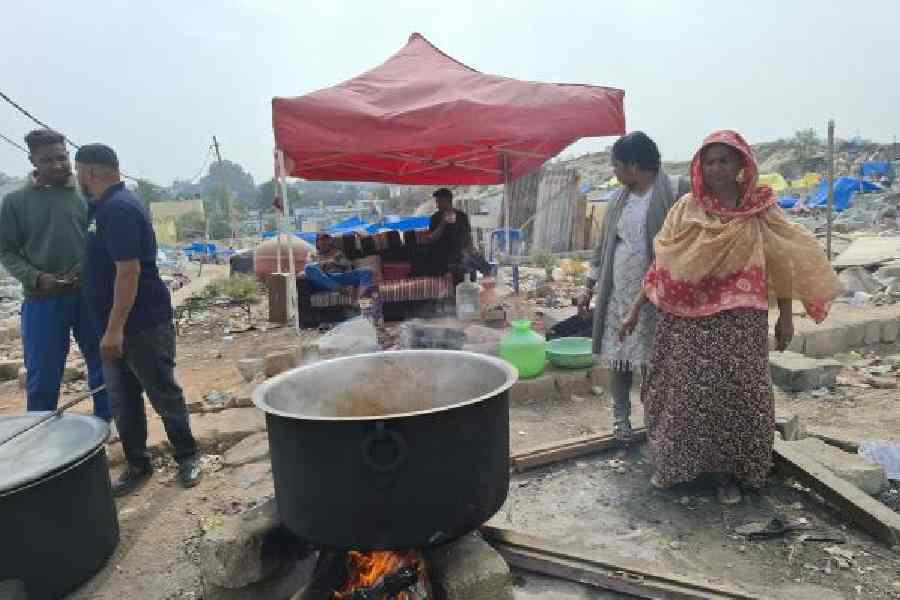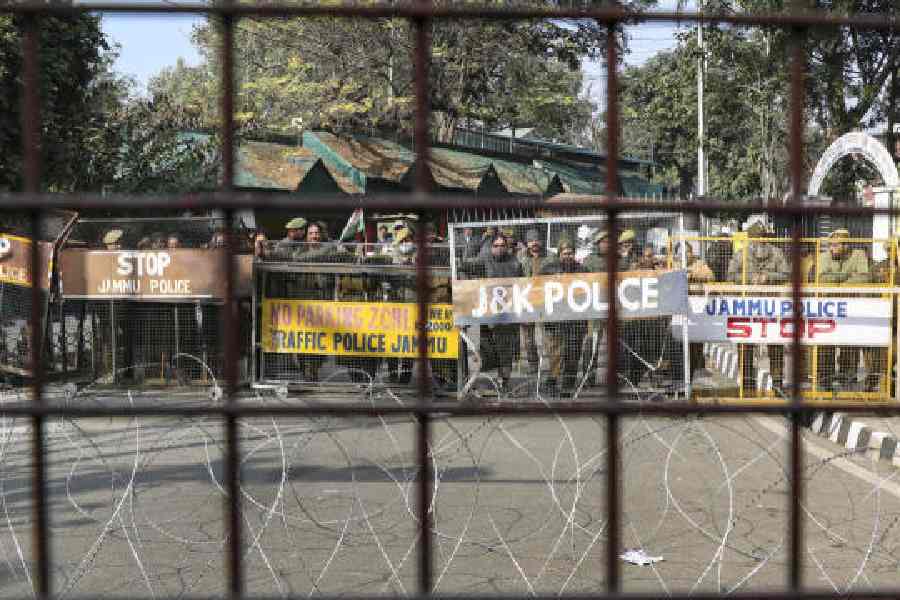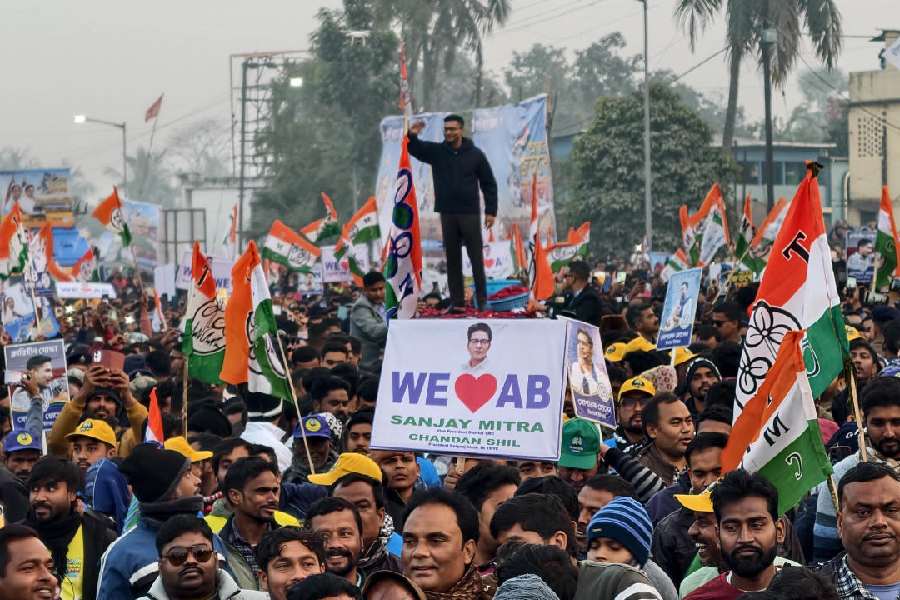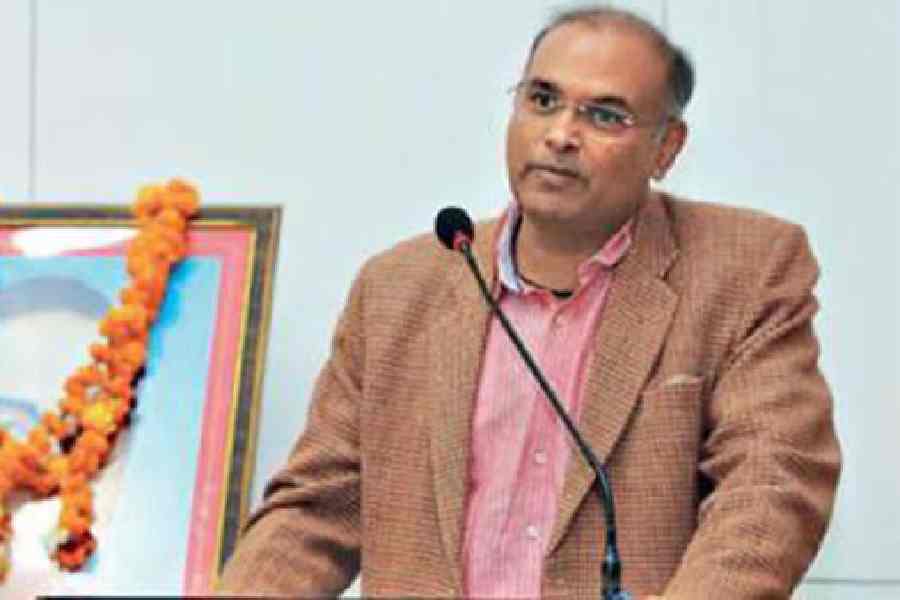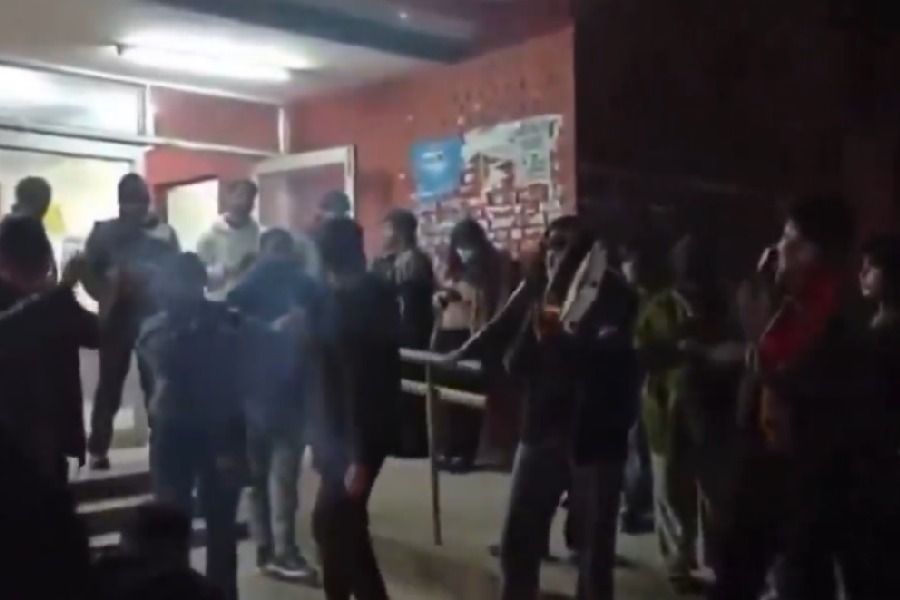 |
| Father, dear Father: Buddhadeva Bose and (below) daughter Damayanti Basu Singh |
 |
There is nothing unusual in the concern reflected in the following lines from a letter written on September 6, 1962, by a father to his daughter, who had gone to the United States to study.
“Rumi?since this morning, I am really worried. Have you kept your money and traveller’s cheques in a safe and handy place? I should’ve checked everything at the airport, but just didn’t remember to do so. Exchange the pounds I gave you in England. For your small expenditures spend the loose change that you have in dollars. With the money I gave you and the first instalment of your scholarship, open an account in Bloomington. Don’t deposit the traveller’s cheques in the account. You’ll need those for your trips across the country. And make sure you don’t lose the slip with the cheque numbers written on it. ...Baba.”
No, nothing unusual at all. But the lines, written in Bengali, acquire special significance when you consider that they were written by Buddhadeva Bose, one of 20th century Bengali literature’s most influential and well known personalities.
But few know the more private side of the eminent scholar, poet, writer and translator, who engineered a literary movement that dared to challenge Tagore’s monopoly of the literary scene and who was responsible for setting up Jadavpur University’s comparative literature department. Few saw Bose as a family man ? husband and the father of three children.
Until now, that is. Last week, a collection of Buddhadeva Bose’s letters to his younger daughter, Damayanti Basu Singh, or Rumi, was published by Vikalp as Buddhadeb Boshur Chithhi ? Kanishthha Kanya Rumi’ke (Buddhadeva Bose’s Letters to His Youngest Daughter Rumi). As Basu Singh spells out in her introduction to the book, “We come to know poets and writers through their work in one way. But only very private, personal letters can mirror the real image of the inner person.”
While the book launch ? by Bose’s wife, Protiva Devi ? held at Charnock City, Calcutta, saw the who’s who of Bengali literature attend and reminisce about Bose the literary figure, the readings of extracts from the book unmistakably revealed him as a loving father, who to little Rumi was just “my father.”
In the book, she talks about when and how she became close to her father. “Just three months before I turned six, my younger brother, Pappa, was born. Until then, I was the baby of the family? and considered myself the beneficiary of 100 per cent of my mother’s attention. Though at the time I must have felt quite desolate by this sudden invasion of my space, today I say, ‘Thank God, it happened. It gave me a chance to literally get close to my daddy.” Because from that night on, my sleeping area was to be the tiny space between the wall and my dad in his single bed. It was during this time that Buddhadeva had started keeping ‘poems from a night fairy’ under Rumi’s pillow with inspiring messages. In fact, part of Buddhadeva’s children’s writings were inspired by his interactions with little Rumi.
The letters reveal facets to Buddhadeva’s personality such as only a private exchange of ideas with an insider ? a daughter ? can. Every one knows that 202 Rashbehari Avenue, where Bose lived with his family in Calcutta between 1937 and 1966, was a coveted hang out for poets and publishers, editors and intellectuals, scholars and professors. They spent long hours there engaging in stormy debates on a wide range of topics over endless cups of tea. But how many know that Bose had grown so attached to the first floor apartment that initially, he couldn’t accept that he would ultimately leave. “I know you’ve bought many things for the new house in Naktala,” he wrote to Rumi, “but I still can’t believe that we are actually going to leave this flat.”
The annotations and short histories, by Basu Singh, which help the reader understand unfamiliar references, also throw light on Bose the family man.
His habits, for instance. She writes, “We knew that it was not a good idea to disturb Dad when he was writing? And I remember that Dad used to write late into the night.” And his sensitivity: “He used to place books beside the table lamp to block the light so that it wouldn’t disturb our sleep.”
The reader gets a glimpse into the financial upheavals that sporadically plagued the family, and the politics at work, which compelled him to resign from his job, and the greatness of his character, with which he dealt with it all.
One of the most recurrent themes of the letters is the fatherly concern, the hallmark of any father-daughter relationship. “Let me start off by saying that no matter how late you go to sleep, whatever the circumstance, don’t take any sleeping pill. That seems to be a fad among the young in the United States now.”
What emerges from the letters ? which spans a little more than a decade, ending with the father’s last letter to the daughter, which reached her after his death ? is a unique personality of the private family man that Buddhadeva Bose was. It is a picture that few outsiders could ever hope to get to know. Even if they dropped in at 202 Rashbehari Avenue in those days.

